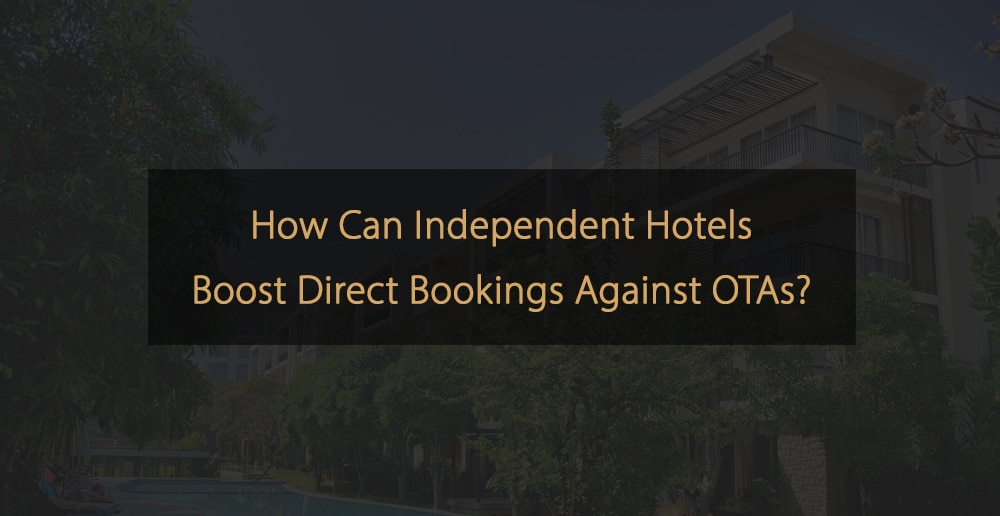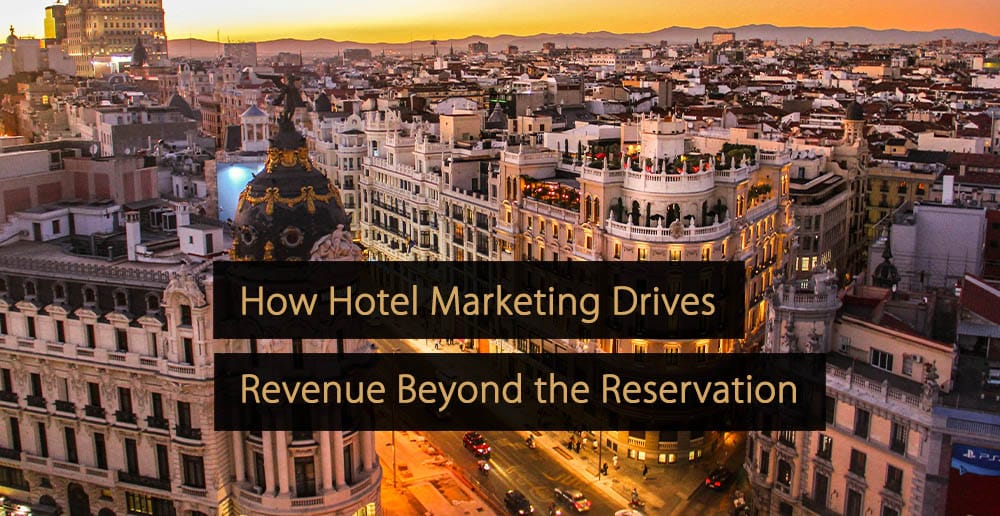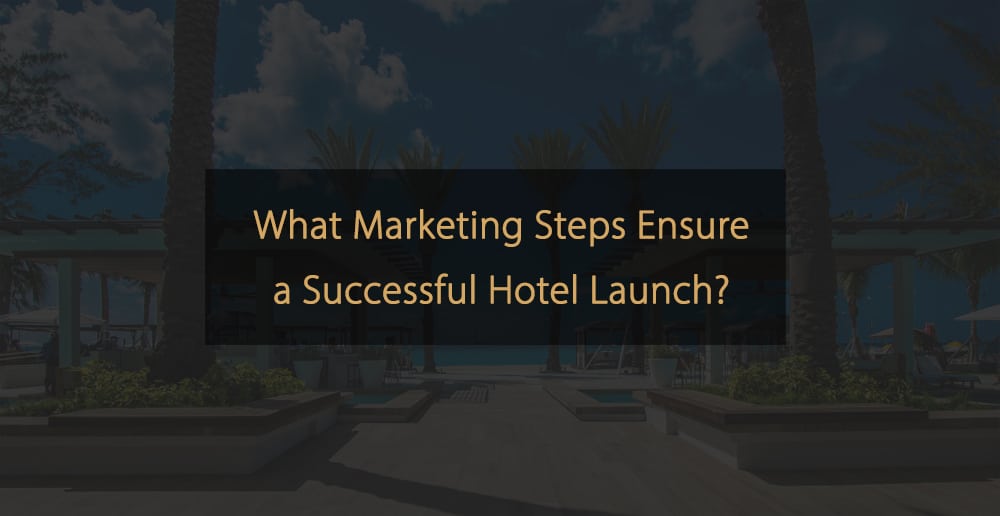Question for Our Hotel Marketing Expert Panel
What is the impact of social selling in hospitality? What are the best practices for success? Are there any misconceptions about it and if so, why? (Question proposed by Cory Falter)
Industry Expert Panel
Our Industry Expert Panel exists out of professionals within the hospitality & travel Industry. They have comprehensive and detailed knowledge, experience in practice or management and are forward-thinking. They are answering questions about the state of the industry. They share their insights on topics like revenue management, marketing, operations, technology and discuss the latest trends.
Our Marketing Expert Panel
- Cory Falter – Partner, Lure Agency
- Moriya Rockman – Chief of Marketing, Smiling House Luxury Global
- Max Starkov – Adjunct Professor Hospitality Technology, New York University
- Michael J. Goldrich – Founder & Chief Advisor, Vivander
- Luminita Mardale – Director Of Marketing And Business Development, Vienna House
- Thom de Graaf and Kamila Zawadzka – Online Marketing, The Orange Studio
- Stephanie Smith-Sparks – Founder, Cogwheel Marketing
- Ask Our Panel a Question
- Join Our Expert Panel
“Social selling is a modern sales technique that leverages social media platforms to build relationships, engage directly with potential clients, and enhance sales performance. Gone are the days of cringey cold calls and impersonal email blasts. Instead, social selling taps into the power of LinkedIn, Instagram, and beyond, letting sales pros build relationships, showcase expertise, and engage clients where they already hang out. This isn’t about a hard sell; it’s about creating a magnetic presence that attracts business by offering genuine value. For hotels, it means shifting from “salesy” pitches to meaningful connections that build trust, fill rooms, and turn cold leads into loyal guests—all while turning the traditional sales grind into a more personal, effective, and enjoyable experience.
People think social selling is just social media with a sales twist—a fancy way to pitch online. But in reality, it’s not about spamming people’s feeds with deals or discount codes. Social selling is the art of building authentic relationships, sharing insights, and becoming a go-to source for value. It’s about pulling people in, not pushing them away with relentless self-promotion. Sales pros who get it know that it’s less about “liking” and more about “listening”—tuning into client needs, solving problems, and showing up as a trusted advisor, not just a pitch machine.
Rule number one of social selling? Make it all about them, not you. Craft a LinkedIn profile that speaks to the problems you solve, not just your job title. Use keywords to be found but keep the jargon out. And remember, engagement is key—ditch the “Like” button for thoughtful comments on your prospects’ posts. Share real insights, post valuable content, and don’t be afraid to get personal (yes, even sharing that motocross obsession can be an icebreaker). Want success? Treat your LinkedIn like a digital storefront that showcases your expertise 24/7.”
“Social selling has become an increasingly important tool for driving engagement and bookings in the hospitality industry. By leveraging platforms like LinkedIn, Instagram, and Facebook, hotels can build deeper relationships with potential guests, foster loyalty, and drive conversions.
However, several misconceptions often arise around social selling:
- Social Selling is Only About Direct Sales: Some businesses assume that social selling is simply a way to make direct sales through social platforms. In reality, social selling is more about creating meaningful engagement, sharing valuable content, and positioning the hotel as a thought leader. For luxury brands, this is particularly important. As you mentioned, the approach is not about “selling” but about providing insightful content on topics like sustainability, destination highlights, and unique experiences. This fosters trust and interest, which can later convert into bookings.
- It’s Only for Younger Audiences: Many luxury hotels might assume that social selling works best for younger demographics. However, social media channels like LinkedIn provide access to top-level executives and decision-makers in the luxury travel market. Engaging these individuals with thoughtful, relevant content can help build relationships that lead to high-value bookings.
Best Practices for Social Selling in Hospitality:
- Engage Through Thought Leadership: Share insightful content, such as trends in luxury travel, sustainability initiatives, or unique experiences available at your properties. This positions your brand as an authority and sparks interest from your target audience.
Use Visual Storytelling: High-quality imagery and video content that showcase the luxury experience, destinations, and unique offerings can be extremely effective in capturing attention. Platforms like Instagram and LinkedIn are perfect for showcasing the beauty of your properties and the experiences you offer. - Build Relationships, Not Just Transactions: Take a conversational approach to engagement. Respond to comments, share user-generated content, and build connections with potential guests through meaningful interactions.
- Highlight Unique and Exclusive Experiences: Luxury guests seek exclusivity, so highlighting hidden gems, unique offerings, and personalised experiences can set your hotel apart from competitors.
Social selling, when executed strategically, is a powerful way for hospitality brands to build relationships, engage with their audience, and drive bookings.”
“Social media affects travel planning, no doubt about it. But so do the search engines. Review sites. Metasearch. TV. Word-of-mouth. Younger generations are more influenced by digital platforms than older generations. The question is, in which phase of the digital customer journey is the influence of social media most impactful?
Social selling has existed for 20 years now so this is not a new or unique marketing initiative. Guess what % of hotel bookings come from social selling today? 50%? 30%? 20%? 10%? 5%? Nah, 0.05%! After 20 years of trying hard to turn social media into a distribution channel, it still remains an important, but just one of the touch points in the Dreaming and Planning Phases of the Digital Customer Journey.”
“Social selling in hospitality goes beyond posting beautiful images or running ads on social media. Its true potential lies in using social channels to build relationships and drive direct revenue. For example, luxury hotels often use Instagram DMs to provide high-touch concierge services, while boutique properties build communities of loyal guests in Facebook Groups.
A common misconception is that social selling is mainly about content creation. In reality, it’s about strategic listening and engagement. Leading hotels actively monitor travel-related conversations about their destination, engaging with potential guests long before they start their formal booking process.
Best practices:
- Train front-office staff to handle social interactions with the same professionalism as in-person interactions.
- Use social listening tools to identify and connect with potential guests talking about your destination.
- Empower teams to resolve guest issues and confirm bookings directly through social channels.
- Share authentic, behind-the-scenes content that highlights your team and local experiences.
- Track social interactions through to conversion by using proper UTM parameters.
The key is to treat social channels as an extension of your service environment, not just another marketing platform.”
“Social media is used by travellers from all age groups that engage on platforms from LinkedIn, Facebook, Instagram or TikTok. Hotels must offer a mix of valuable content as travel tips, behind-the-scenes stories, guest experiences and then integrate the occasional promotion to keep the audience engaged.
Influencers can amplify the reach and lead credibility to the hotel through authentic endorsements. The impact of social media is significant, and using social media channels to boost engagement and drive bookings has become an essential strategy for hotels, as guests are looking for personalised human experiences when choosing where to stay.”
“Community building is one of the most effective ways to create a loyal ‘fanbase.’ Think of Swifties, Beyoncé’s Beyhive, SoulCycle, or Soho House. People are increasingly seeking a sense of belonging within a larger, like-minded group. As a brand, you can foster your own community on social channels, as long as your message is honest and consistent. This message will naturally resonate with a particular audience. Let them be your voice, whether they are loyal guests or dedicated employees.
A common misconception is that social selling is deceptive, only designed to tell consumers what they want to hear without delivering on it. That’s why it’s essential to truly understand your core brand values and stay committed to them. Walk the talk.”
“The misconception lies in the trackability. Many people want to see more direct ties and attribution between social and the sale/RFP/booking. The reality is that many people consume social content but do not engage/like/comment. So, while it is a great awareness technique, sometimes you won’t feel the value directly.”
Ask a Question & Join Our Expert Panel
Would you like a question to be answered by our Industry Expert Panel? Or would you like to join our community of experts and share your experience, insights, and knowledge with fellow industry professionals? Via the buttons below you can submit a question or submit a request to become part of our expert panel.
More Tips to Grow Your Business
Revfine.com is the leading knowledge platform for the hospitality and travel industry. Professionals use our insights, strategies, and actionable tips to get inspired, optimize revenue, innovate processes, and improve customer experience.Explore expert advice on management, marketing, revenue management, operations, software, and technology in our dedicated Hotel, Hospitality, and Travel & Tourism categories.














Leave A Comment